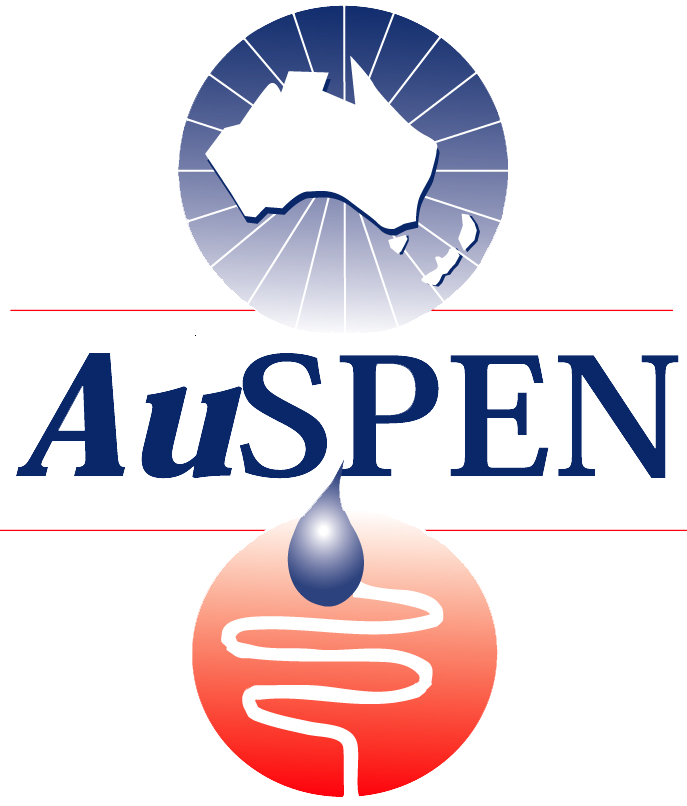Growing future researchers: AuSPEN Mentoring Program
OBJECTIVES:
To support novice clinicians researchers who may or may not be enrolled in any formal research program to;
Demonstrate skills to turn a clinical questions or evidence practice gaps into a significant quality projects or quality research project.
Create a research support network with like-minded clinicians and experienced research mentors
Work towards completing a quality/research project over the mentoring period with the support of the program and mentors.
AuSPEN acknowledges that often novice clinician researchers find it difficult to get research started and often don’t have access to experienced researchers. This program will endeavour to bridge that gap.
COURSE OVERVIEW:
Led by 8 expert mentors
Capped at 20 participant for 2023
12 month program from March/April 2023
Second monthly - 6 Online workshops (1-1.5hrs during business hours) – program adapted to meet the needs of participants
Alternate months - 30 min informal networking & mentoring session
An online group will be set up for participants to actively chat to peers and mentors and submit progress reports every 3 months and receive feedback from the mentors
Course cost is $250 (members only) to be paid on registration accepted into the course
SELECTION CRITERIA:
Current AuSPEN Member
Support from your manager to participate in the program, including the agreement for you to undertake a specific research or quality project (which may or may not have grant funding)
Have a defined quality or research project that you wish to further develop and pursue over the next 12 months
At least 3 years clinical experience
Base qualification (eg. Bachler of Nutrition and Dietetics, Bachler of Nursing) at a minimum
Agree to the program terms to actively participate in at least 80% of sessions, to provide progress reports every 3 months, and to commit to progress to complete a project over the 12-month mentoring program.
Course commences - end of March/April
(20 participant cap )
Introducing The Mentors
Dr Kate Fetterplace
Kate Fetterplace is a clinical researcher, who completed her PhD in 2020 focused on protein provision in critically ill patients and functional outcomes. Kate is a Senior Clinical Fellow at the University of Melbourne and the Chair of the Australian Society of Parenteral and Enteral Nutrition Scientific Committee. Kate is co-leading the inaugural AuSPEN Mentoring program and hopes to help facilitate the growth of clinician researchers in the area of clinical nutrition and would like to see much closer collaborations between hospitals, universities and societies such as AuSPEN. Kate's key areas of interest are healthcare system improvements, improving recovery post-acute illness, the treatment and prevention of hospital acquired malnutrition and optimising models of care.
Dr Kate Lambell
Kate has over 16 years’ experience working as a clinical dietitian and currently leads the ICU, burns and trauma nutrition team at The Alfred Hospital in Melbourne. In 2021, Kate completed her PhD which focused on the evaluation of novel bedside techniques for muscle mass assessment in critically ill adults. Kate has research interests in critical care nutrition, nutrition support, body composition analysis, energy expenditure, and diagnostic tools to assess and monitor nutrition status during hospitalisation. Kate is co-leading the AuSPEN Mentoring Program and is passionate about both mentoring and learning from others, and is excited to build a network of inspiring clinical nutrition researchers!
Dr Adrienne Young
Adrienne Young is a health services researcher, who completed her PhD in 2013 focused on implementing and evaluating models of nutrition and mealtime care for acute inpatients. Adrienne is a Senior Clinical Fellow at the University of Queensland and Research Coordinator at the Royal Brisbane and Women’s Hospital where she supports and mentors clinical dietitians to undertake practice-based research and improvement. She looks forward to the opportunity to expand this mentoring to dietitians working across Australia and forming new partnerships and friendships through this program. Adrienne’s key areas of interest are improving hospital nutrition care systems to optimise patient experience and outcomes, and applying implementation science and engaging consumers in the design, execution and evaluation of her research.
Dr Sarah Andersen
Sarah Andersen is an advanced accredited practicing Dietitian who currently works as a Senior Dietitian and as a Metro North Clinician Research Fellow. Sarah has a strong interest in research investigating nutrition during cancer treatment and completed her PhD at the University of Queensland on nutrition support during allogeneic stem cell transplantation in 2021. Sarah’s research has focused on investigating the use of enteral and parenteral nutrition, the influence of nutrition on the gastrointestinal microbiome and changes in body composition and energy expenditure during cancer treatment.
Dr Lisa Barker
Lisa Barker is a Registered Dietitian, with a Certified Nutrition Support Clinician (CNSC) credential, currently working as a lecturer in the Masters of Nutrition and Dietetics program at Monash University. Lisa has worked clinically in the United Kingdom, the United States and Australia. Lisa completed her PhD in 2015, looking at malnutrition management and gastrointestinal surgery. Lisa is an active member of the Australian Society of Parenteral and Enteral Nutrition Scientific Committee. Lisa’s key areas of interest include authentic assessment in dietetics education, shaping dietitians of the future to be leaders in nutrition advocacy and education, and empowering clinician’s to produce quality research that can shape the future of our profession.
Dr Erin LAIng
Erin is a senior specialist dietitian and researcher at Peter MacCallum Cancer Centre (Peter Mac) in Melbourne. She completed her PhD in 2020, which explored the nutritional complications and needs of patients with neuroendocrine tumours. Erin has extensive experience working with all cancer and treatment types, and specialist knowledge in the nutritional management of people with upper and lower gastrointestinal cancers, including neuroendocrine tumours. Erin also leads the multidisciplinary parenteral nutrition service at Peter Mac. Her research interests and experience include mixed methods projects (combination of qualitative and quantitative data collection), exploring unmet needs and optimal models of care for patients, and consumer-informed research. She looks forward to connecting and collaborating with other clinicians and researchers though the AuSPEN mentoring program and helping to inspire future clinician researchers.
Dr Lauren Hanna
Lauren Hanna is an Accredited Practising Dietitian with over 10 years’ experience in clinical dietetics, across a range of areas including critical care, oncology, and renal disease. Lauren completed her PhD in 2022 exploring the interplay between nutrition status, skeletal muscle stores, quality of life and survival in people with upper gastrointestinal cancers. She is certified and experienced in CT-derived body composition analysis, and has experience in multi-site randomised controlled trials and observational studies in hospital and community settings. Lauren works as a researcher with the Department of Nutrition, Dietetics and Food at Monash University, and as a clinical dietitian at Monash Medical Centre in Melbourne. Lauren is passionate about optimising cancer patients’ quality of life and experience of health care across their treatment journey, facilitation of dietitians working to the top of their scope of practice, and ultimately improving nutrition care for people with cancer.
Dr Emily Jeffery
Emily Jeffery is a Lecturer and Coordinator of the Master of Dietetics program at Curtin University. Prior to moving into academia, Emily worked for 9 years as a clinical dietitian at Sir Charles Gairdner Hospital in Perth. Emily completed her PhD in 2020, which focused on the nutritional status and body composition of people with malignant pleural disease. Her current research interests include combined nutrition and exercise interventions to optimise body composition in people with cancer and body composition analysis techniques. Emily also has a keen interest in mentoring students and new graduate dietitians and is looking forward to helping others build their research skills during the AuSPEN mentoring program.










